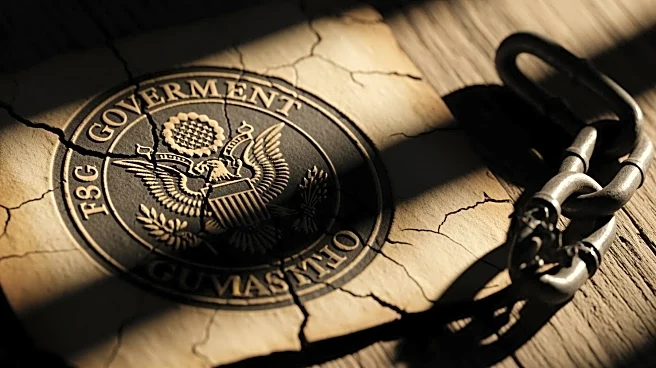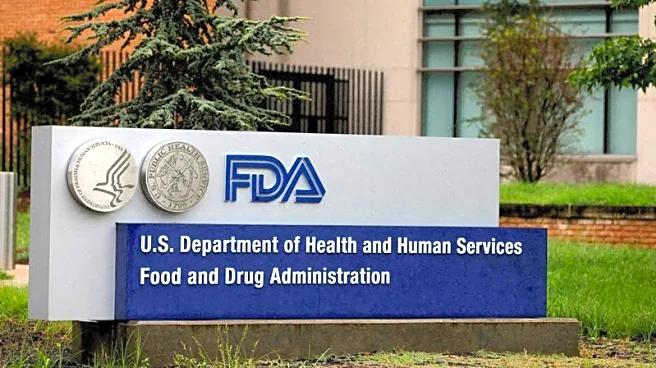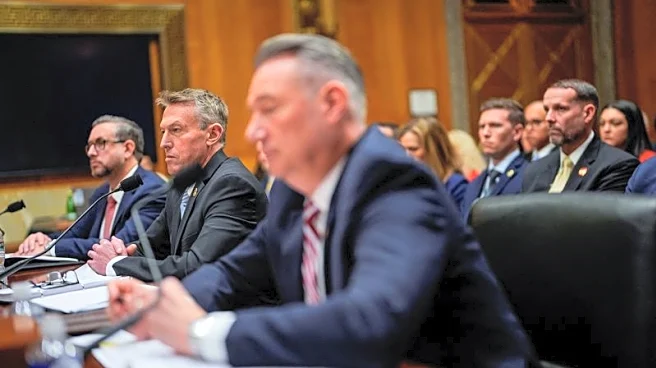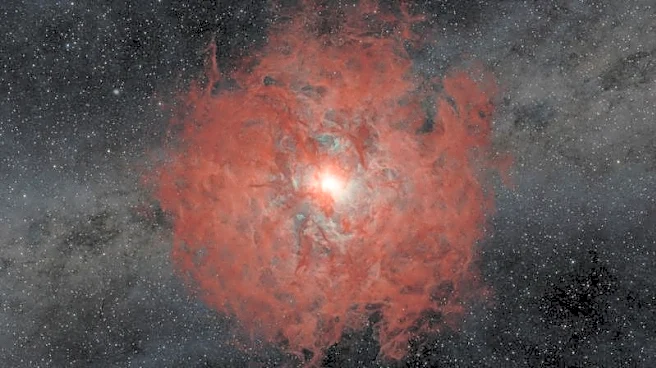What's Happening?
The United States government has imposed visa restrictions on Fritz Alphonse Jean, a member of Haiti's transitional presidential council, accusing him of supporting gangs and obstructing efforts to combat criminal organizations. This move is expected
to exacerbate Haiti's political instability. Jean, an economist and former central bank governor, confirmed the sanctions and rejected the accusations. The U.S. did not initially name Jean in its announcement, but he later identified himself as the sanctioned individual. The transitional council, formed after the resignation of former Prime Minister Ariel Henry, is under pressure to hold elections by February 7, 2026. However, ongoing gang violence has made meeting this deadline challenging. The council has faced criticism for allegedly seeking to extend its power beyond the scheduled elections, a claim Jean denies. He asserts that the council is committed to fighting corruption and gang influence.
Why It's Important?
The sanctions against Fritz Alphonse Jean highlight the ongoing challenges in Haiti, where gang violence and political instability have severely impacted governance and public safety. The U.S. action underscores international concerns about the influence of gangs in Haiti, which control significant portions of the capital and other territories. This situation has led to widespread violence, extortion, and civilian casualties. The sanctions could further complicate Haiti's political landscape, potentially delaying the already precarious electoral process. The international community, including the U.S. and Canada, has been pressuring Haiti to address these issues, but the effectiveness of these efforts remains uncertain. The situation in Haiti is a critical concern for regional stability and humanitarian conditions, with potential implications for U.S. foreign policy and international relations.
What's Next?
Haiti is scheduled to hold elections by February 7, 2026, but the ongoing violence and political tensions may hinder this process. The transitional council, under pressure to organize these elections, faces significant challenges in ensuring a safe and fair electoral environment. The U.N.-backed mission led by Kenyan police has struggled to contain the violence, and a new gang-suppression force is anticipated to have the authority to arrest suspected gang members. The international community will likely continue to monitor the situation closely, with potential for further diplomatic actions or sanctions if the situation does not improve. The outcome of these efforts will be crucial in determining Haiti's political future and stability.

















